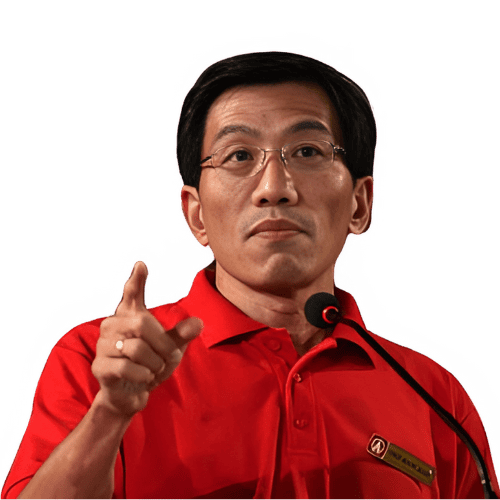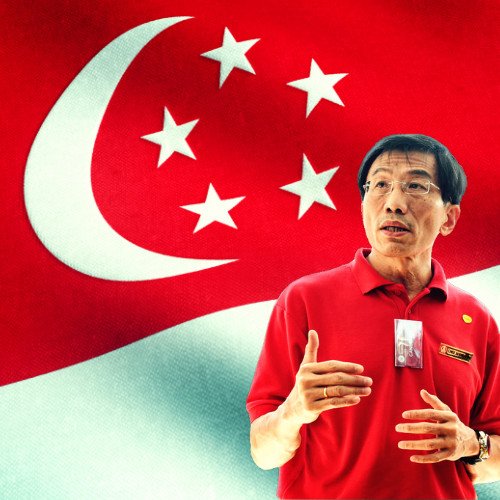Examining the Decline of the PAP: A Call for Greater Opposition

Reference from 
Examining the Decline of the PAP: A Call for Greater Opposition
TL;DR
The People’s Action Party (PAP) has faced significant scrutiny in light of recent scandals and mismanagement, highlighting the need for a stronger opposition in Singapore’s Parliament to foster accountability and better governance.
The Resignation That Shook Singapore
Overview of the Speaker of Parliament’s Resignation
In June 2023, Singapore’s political landscape faced a jolt when Speaker of Parliament, Tan Chuan Jin, resigned. His departure stemmed from an extramarital affair with another MP, Ms. Cheng Li Hui. It wasn’t just a personal scandal; it exposed a deeper issue within the ruling party.
Impact of Extramarital Affairs on Public Trust
Extramarital affairs among political leaders can cause significant public outcry. They can shatter trust in those we elect to serve us. I wonder, how can we trust leaders who fail in their personal lives? In a nation like Singapore, where leadership is often viewed as extraordinary, this incident challenges that narrative.
Discussion on Leadership Accountability
Tan’s resignation puts a spotlight on accountability. Leadership isn’t just about making decisions; it’s also about personal integrity. As we reflect on Mr. Li Chenlong’s handling of this affair, it raises questions. Did he act swiftly enough? Should he have allowed Tan to remain as Speaker for so long? These lapses highlight a troubling leniency in leadership.
“We need to bust that myth of exceptional leadership in Singapore.”
Ruling Party’s Prior Scandals
This situation isn’t isolated. Since 2012, the ruling party has faced numerous scandals. Each incident chips away at public trust, making it crucial to evaluate who leads us. If trust erodes, what does that mean for the future? Is it time we re-evaluate our expectations from leaders? The perception of an elite class can be dangerous, particularly when accountability becomes a rare phenomenon.
In the end, incidents like Tan’s resignation remind us that leadership, at its core, must be grounded in integrity. Only then can trust be rebuilt in Singapore’s political sphere.
The Tan Chuan Jin Affair: A Lesson in Leadership Failures
Timeline of Events
The Tan Chuan Jin affair began in 2020. Prime Minister Lee was aware of serious allegations regarding a member of the People’s Action Party (PAP). However, it wasn’t until February 2023 that any decisive action was taken. This lengthy delay raises critical questions about leadership decisiveness. Why did it take so long? The public was left anxiously waiting for clarification and accountability.
Criticism of PM Lee’s Handling
I can’t help but notice the criticisms aimed at PM Lee, particularly for his indecisiveness. People often criticize their leaders for being too passive. In this case, individuals are comparable to a ‘grandfather’ who won’t intervene, even when it’s necessary. This raises doubts about effective governance.
“Whoever wishes to govern Singapore must have that iron in him.” – Lee Kuan Yew
How can we trust a leader who seems hesitant to act?
Public Reactions
Public trust erodes when actions are not transparent. The prolonged inaction led many to voice their dissatisfaction. Social media was filled with comments reflecting disappointment and mistrust. People began to question the integrity of the PAP. Was the leadership out of touch with the citizens’ expectations? Judging by the comments, it certainly felt that way.
Compounded Errors and Public Trust Erosion
Public trust in government is precarious. When mistakes happen, they can ripple through society, affecting perceptions and opinions. We can observe this through recent events involving the People’s Action Party (PAP) ministers.
Other Instances of Mistakes
Take the ongoing issues with the MRT, for instance. After a massive $2.6 billion renewal project, one would think reliability would improve. But then came the September disruption. Half a million trips a day affected! Is this what we expect after such an investment? It leaves us wondering where the accountability lies.
- Michael Palmer’s resignation in 2012 due to scandal.
- David Ong’s similar issues in 2016.
How many more will it take for real change?
The Impact of Public Outcry
Public sentiment can be powerful. When outraged, citizens mobilize. Petitions against government policies have surfaced as a means to voice dissatisfaction. These actions demonstrate a critical reaction to mismanagement and negligence.
Importance of Accountability
Isn’t it essential for leaders to uphold a standard of accountability? When they slip up, acknowledgment is necessary. Otherwise, we risk eroding the foundational trust that binds us together. What kind of governance can thrive in a culture of silence?
As the government grapples with these failures, the need for transparency becomes glaringly clear. The importance of accountability is not just a buzzword; it’s the heart of effective governance.
As we consider these compounded errors, one truth remains. Trust in government is not a given; it must be earned and protected.
Why We Need A Meaningful Opposition
The strength of a democracy lies in balance. Without a meaningful opposition, we risk a governance style that lacks diverse representation. This is crucial for a system that truly aims for progress. When only one voice dominates, it creates an environment where innovation and improvement stagnate. Can we thrive if we are hearing the same perspective over and over? The answer is no.
The Role of Dissent
Dissent plays a vital role in a healthy democracy. It pushes the government to be accountable and transparent. The recent conduct of the People’s Action Party (PAP) highlights this need. The resignation of the Speaker of Parliament over an affair shines a light on ethical lapses. Was there no one to question the integrity of such actions? The subsequent lack of opposition voices can lead us into a blind faith: “Blind faith lulls society into thinking that things are fine when they are clearly not.”
Learning from Others
We can look at other democracies for examples of effective opposition. In countries like Canada and the UK, oppositional parties have been crucial in driving policy changes. They challenge the government and present alternatives. Their role can significantly improve the political landscape. Without them, governance may veer into complacency.
To wrap up, I believe that strengthening our opposition is pivotal for the future of our democracy. Let’s hope for a more balanced, accountable, and innovative governance system. For the sake of our society, we must support diverse voices and foster critical thinking. The health of our democracy depends on it.

